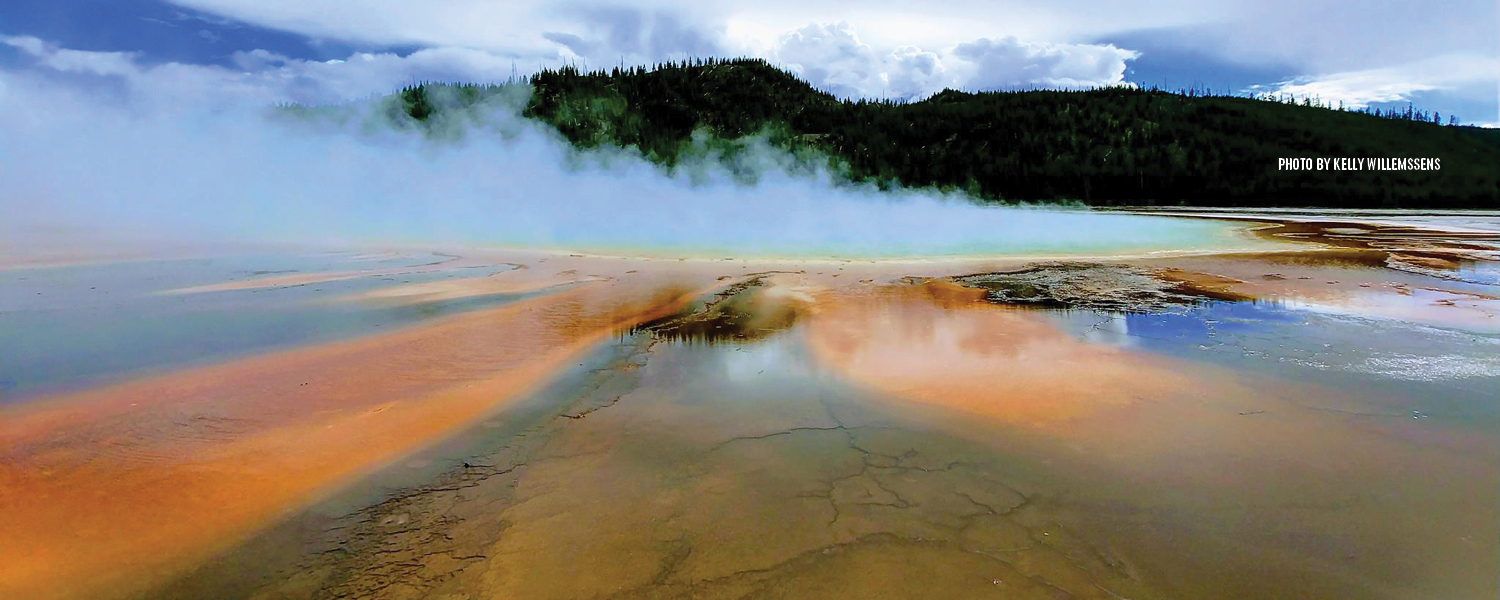
If you’re one of the 4.1 million guests to drive through Yellowstone National Park this year, you may just hear a familiar voice on the radio.
“Run. Stop. Run. Stop,” the voice says.
That’s Kelly Willemssens, School of Natural Resources graduate student, who’s featured in a podcast airing in the national park about one of the park’s tiniest and most valuable creatures: the wetsalts tiger beetle. The podcast also is available for download here.
For the past couple of years, Willemssens has spent her summers conducting research on the beetle as part of a project led by Dr. Leon Higley, insect ecologist with SNR, for the National Parks System.
“When you think about the Yellowstone National Park, you may think about Old Faithful, wolves, bison, elk, and bears, but do you ever think about what else lives in the park?”, asked Willemssens. “That's where our story came in to play. These podcasts are a way to involve visitors with research that is going on in the park, and our story was particularly of value because insects usually get overlooked.”
To record the podcast, Jennifer Jerrett, science editor, radio producer and sound recordist for the national park, and her intern followed Willemssens and her undergraduate research assistants John Bowley and Mike True as they collected tiger beetle observations at three sites.
“One of the sites is very dangerous to get to because you have to hike through thermal features,” Willemssens said. “Here they recorded sounds from the thermal features and of us performing our observations and collecting our data. . … It was interesting to see how well you have to be aware of your surroundings and background noises or else editing would become problematic.”
The podcast travels with them from site to site, as the crew watches the Cicindela haemorrhagica as it bursts into a run near the park’s thermal springs, water bodies near 150 degrees that are extremely acidic and contain toxins.
“The fact that these beetles are here and are thriving is absolutely unique and kind of a mystery,” Willemssens tells Jerrett.
The idea that 4 million visitors will have the opportunity to learn about the beetle and her research is rewarding, Willemssens said. “You can get people excited about your research and show them why it is important!"
Listen to the podcast here.
Shawna Richter-Ryerson, the School of Natural Resources